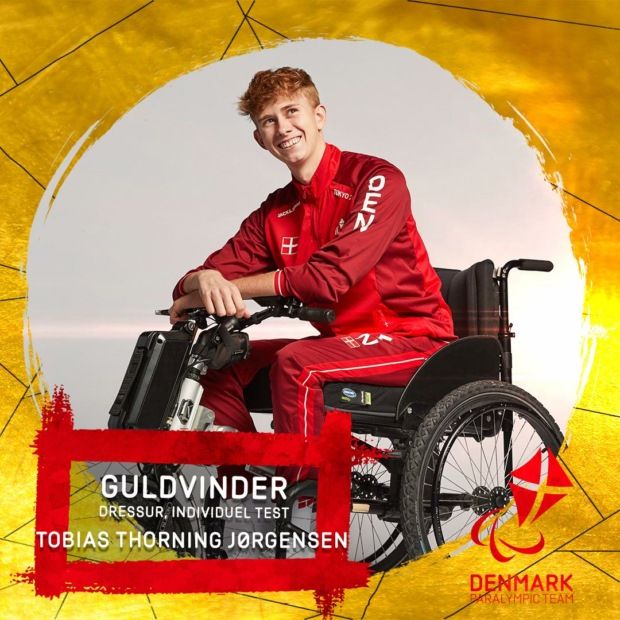News
Three-gold Paralympic haul a slight improvement on 2016
This article is more than 4 years old.
Dressage rider Tobias Thorning Jørgensen leads the way with two victories
Denmark won five medals at the Paralympic Games – its equal lowest ever tally since its debut at the games in 1976 and two short of the optimum number set by Dansk Handicap Idræts-Forbund.
However, its total of three golds was its most since 2008. Still, it was a long way short of the heady days of the 1980s, when Denmark won 30, 23 and 12 golds between 1984 and 1992.
Denmark finished 40th in the final medal table, 10 and 11 places ahead of its showing at the 2012 and 2016 Paralympics respectively.
And perhaps more importantly, it was the top Nordic nation, leaving Norway (47), Sweden (50) and Finland (52) in its wake.

A Danish double gold-medallist … you don’t get to say that very often (photo: (photo: DIF Facebook page)
Double gold for dressage star
Denmark chiefly owed its improved number of golds to one performer.
Dressage star Tobias Thorning Jørgensen, 21, aboard his grey mare Jolene Hill, won a double gold in the championship and freestyle test grade III events.
Jørgensen talks about his horse like she’s a character on ‘Eastenders’.
“She’s a real mare and if I don’t ask her first, she gives me the finger and says: ‘You can do something else’. But if I ask her correctly she’ll be there and will go through fire for me,” he told media.
Jørgensen wasn’t the only debutant to reach the top of the podium. Taekwondo star Lisa Gjessing, 43, impressed everyone, not least herself, on her way to victory.

Gold for Lisa Gjessing (photo: DIF Facebook page)
Long wait continues in long jump
Elsewhere, long-jumper Daniel Wagner took his third successive bronze medal.
At the age of 28, time is running out, and this time around he was denied in the cruellest of fashions.
A first round leap of 7.07 metres placed him top of the leaderboard, where he remained for 90 minutes. But then in the sixth and final round, two of his competitors jumped further.
Table-tennis player Peter Rosenmeier, 37, a defending champion, also lost out at the death, losing in the final to earn silver.










































